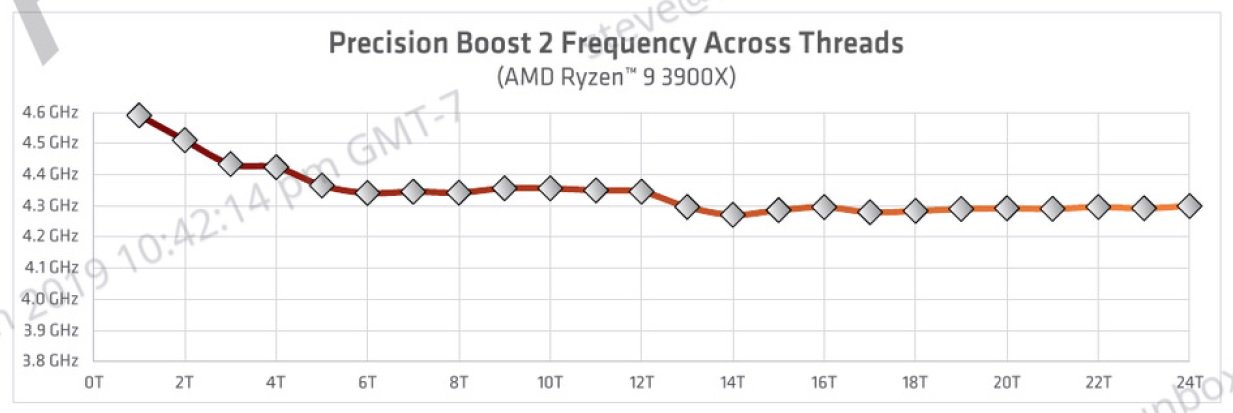Interesting, it kinda conflicts with what this thread on Reddit was saying
https://www.reddit.com/r/Amd/commen...ing_gimped/?utm_source=share&utm_medium=web2x
"
So people don't have to read through the whole thing, this is the part about the boost frequencies. (seems like benchmarks might need to be redone)
The whole story…
During the first three hours of testing of the AMD Ryzen 9 3900X processor, using the X570 AORUS XTREME board, I noticed the problem when PCMark 8 did not pass the first test after 40 minutes (this is a total of ten tests). I noticed WHEA error (Windows Hardware Error Architecture) in HWInfo64 (se this software for PC telemetry, highly suggested).
From there I also decided to pay more attention to HWInfo64 and also checked that the BOOST frequencies of the processor had problems, since it didn’t get to “boost” all its cores to the maximum that it should, which is 4.6 GHz. It reached 4.5 GHz to 4.575 GHz in a pair of cores and the rest of cores to 4.3-4.4 GHz… We used manufacturers chipset driver, we have used press chipsets, as more current chipset driver version, same results.
It seemed strange to me, so I first decided to write to my contact with GIGABYTE USA (
Matthew Hurwitz, I thank him for all the time he has put in to find a solution) and showed him the WHEA (PCI Express) errors,
as well as the rare behavior of the 3900X boost frequencies.
Midnight (Wednesday) GBT HQ gives us news and according to their tests, the new AGESA code, including NPRP BIOS (BIOS for press) replicated our results in single-core frequencies, BUT, the original BIOS (AGESA 1002, without code introduced NPRP) turbo boost was working well.
With this information, I decided to flash BIOS,
the first BIOS released for the X570 AORUS MASTER board and surprise, the boost frequencies were working as they should, even beyond the processor at 4.65 GHz. The WHEA error problem in the PCI Express was still going on, so I kept pressing and trying if the problem was maybe the
chipset driver."





